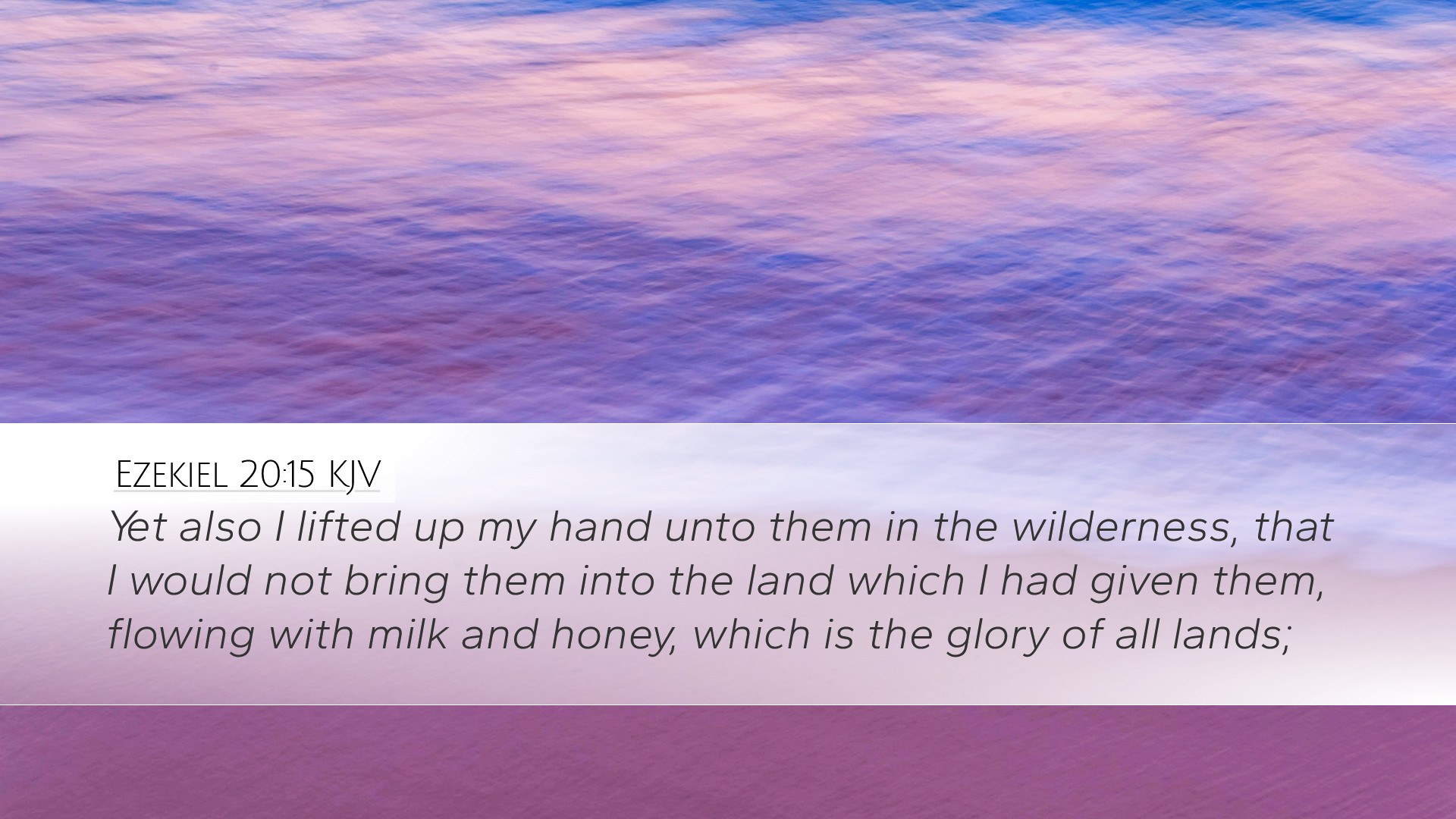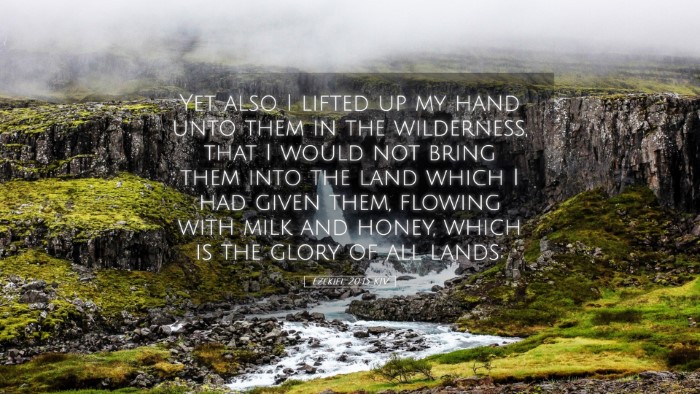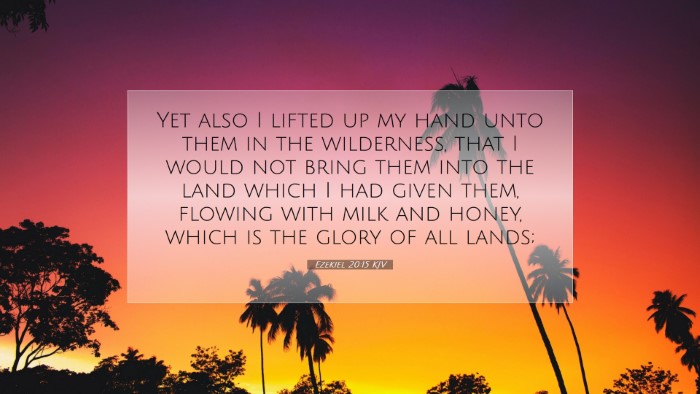Ezekiel 20:15 Commentary
Verse Context: "Yet also I lifted up my hand unto them in the wilderness, that I would not bring them into the land which I had given them, flowing with milk and honey, which is the glory of all lands." - Ezekiel 20:15 (KJV)
Introduction to the Themes
This verse sits within a larger discourse of God's history with Israel, particularly emphasizing His patience and the consequences of their rebellion. It details God's promises juxtaposed with their failures to follow Him. Commentaries from respected theologians like Matthew Henry, Albert Barnes, and Adam Clarke provide profound insights into the spiritual lessons contained in this verse.
Insights from Matthew Henry
Matthew Henry notes that this passage reflects God’s sovereign choice and His dealings with Israel. He emphasizes that God's decision to withhold the Promised Land was not arbitrary, but rather a response to Israel's persistent disobedience and idolatry.
- The Nature of God's Covenant: Henry asserts that God made covenants with His people, promising them blessings, yet these were often contingent upon their faithfulness.
- The Consequence of Disobedience: The refusal to enter the Promised Land was a direct consequence of their lack of trust in God’s power and provision.
- God’s Patience: Despite their failures, Henry praises God’s patience, noting how He continued to engage with His people, offering them chances to repent and turn back to Him.
Insights from Albert Barnes
Albert Barnes expands on the theological implications of this decision. He interprets this action as a reflection of God's justice and mercy. Barnes explains that despite Israel's numerous acts of rebellion, God's intent was always for their ultimate good.
- Judicial Withdrawal: Barnes posits that this divine withdrawal was both a judgment and a lesson, demonstrating that sin carries serious consequences.
- Divine Mercy: Importantly, even in judgment, God's mercy remains evident. He continued to offer His people opportunities for restoration.
- Theological Significance: Such narratives help today’s believers understand the seriousness with which God treats covenant relationships and the holiness required in approaching Him.
Insights from Adam Clarke
Adam Clarke's commentary emphasizes the historical and spiritual lessons of Ezekiel 20:15. He underscores the profound sadness of Israel's situation—the missed opportunities and the glory of the land they forfeited due to their unbelief.
- The Promised Land as a Type: Clarke views the Promised Land as a type of heaven, representing God's ultimate provision for His people, which they rejected.
- Spiritual Implications: He draws parallels to the New Testament, illustrating how believers today can similarly neglect their spiritual heritage through disobedience.
- Encouragement for Perseverance: Clarke encourages modern believers to heed the warnings of the past, ensuring they remain faithful to God’s commandments to avoid the same pitfalls.
Theological Reflections
The overarching theme from these commentaries reveals a complex relationship between divine sovereignty, human free will, and the nature of obedience. It prompts critical reflections for theological discourse today:
- The Sovereignty of God: Recognizing God’s ultimate authority over nations and individuals highlights the importance of acknowledging His justice and mercy.
- Human Responsibility: The narrative illustrates the gravity of human choices and how they impact one’s relationship with God. This tension is vital in exploring the themes of grace and faith.
- Historical Witness: These events serve as enduring lessons for posterity; they highlight the need for vigilance and fidelity in the faith journey.
Conclusion
Ezekiel 20:15 stands as a poignant reminder of the richness of God's promises and the dire consequences of turning away from His will. Through the lenses of Matthew Henry, Albert Barnes, and Adam Clarke, the multifaceted implications of this verse resonate deeply within pastoral and scholarly discourse. The themes of divine justice, mercy, and the importance of obedience challenge believers to remain faithful, reflecting on the vast riches of God's grace while striving to access the fullness of His promises.


